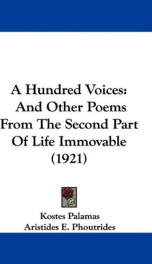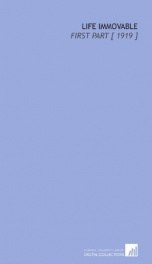Palamas Kostes

Kostis Palamas (Greek: Κωστής Παλαμάς; 13 January [O.S. 8 January] 1859 — 27 February 1943[1]) was a Greek poet who wrote the words to the Olympic Hymn. He was a central figure of the Greek literary generation of the 1880s and one of the cofounders of the so-called New Athenian School (or Palamian School) along with Georgios Drosinis and Nikos Kampas. Born in Patras, he received his primary and secondary education in Mesolonghi. In 1880s, he worked as a journalist. He published his first collection of verses, the "Songs of My Fatherland", in 1886. He held an administrative post at the University of Athens between 1897 and 1926, and died during the German occupation of Greece during World War II. His funeral was a major event of the Greek resistance: the funerary poem composed and recited by fellow poet Angelos Sikelianos roused the mourners and culminated in an angry demonstration of a 100,000 people against Nazi occupation. Palamas wrote the lyrics to the Olympic Hymn, composed by Spyridon Samaras. It was first performed at the 1896 Summer Olympics, the first modern Olympic Games. The Hymn was then shelved as each host city from then until the 1960 Summer Olympics commissioned an original piece for its edition of the Games, but the version by Samaras and Palamas was declared the official Olympic Anthem in 1958 and has been performed at each edition of the Games since the 1964 Summer Olympics. The old administration building of the University of Athens, in downtown Athens, where his work office was located, is now dedicated to him as the "Kosti Palamas Building" and houses the "Greek Theater Museum", as well as many temporary exhibitions. He has been informally called the "national" poet of Greece and was closely associated with the struggle to rid Modern Greece of the "purist" language and with political liberalism. He dominated literary life for 30 or more years and greatly influenced the entire political-intellectual climate of his time. Romain Rolland considered him the greatest poet of Europe and he was twice nominated for the Nobel Prize for Literature but never received it. His most important poem[2], "The Twelve Lays of the Gypsy" (1907), is a poetical and philosophical journey. His "Gypsy" is a free-thinking, intellectual rebel, a Greek Gypsy in a post-classical, post-Byzantine Greek world, an explorer of work, love, art, country, history, religion and science, keenly aware of his roots and of the contradictions between his classical and Christian heritages. Palamas was one of the most respected literary critics of his day, and instrumental in the reappraisal of the works of Andreas Kalvos, Dionysios Solomos and the "Ionian School" of poetry, Kostas Krystallis et al.
do you like this author?
What readers are saying
What do you think? Write your own comment on this book!
write a commentWhat readers are saying
What do you think? Write your own comment on this author!
write a commentBook list

a hundred voices and other poems from the second part of life immovable
Series:
Unknown
Year:
Unknown
Raiting:
4/5
Show more
add to favoritesadd In favorites

Life Immovable
Series:
Unknown
Year:
Unknown
Raiting:
5/5
Originally published in 1919. This volume from the Cornell University Library's print collections was scanned on an APT BookScan and converted to JPG 2000 format by Kirtas Technologies. All titles scanned cover to cover and pages may include marks notations and other marginalia present in the original volume.
Show more
add to favoritesadd In favorites
Book list

a hundred voices and other poems from the second part of life immovable
Series:
Unknown
Year:
Unknown
Raiting:
4/5
Show more
add to favoritesadd In favorites

Life Immovable
Series:
Unknown
Year:
Unknown
Raiting:
5/5
Originally published in 1919. This volume from the Cornell University Library's print collections was scanned on an APT BookScan and converted to JPG 2000 format by Kirtas Technologies. All titles scanned cover to cover and pages may include marks notations and other marginalia present in the original volume.
Show more
add to favoritesadd In favorites
What readers are saying
What do you think? Write your own comment on this author!
write a commentif you like Palamas Kostes try:
readers also enjoyed
What readers are saying
What do you think? Write your own comment on this author!
write a commentif you like Palamas Kostes try:
readers also enjoyed
Do you want to read a book that interests you? It’s EASY!
Create an account and send a request for reading to other users on the Webpage of the book!


